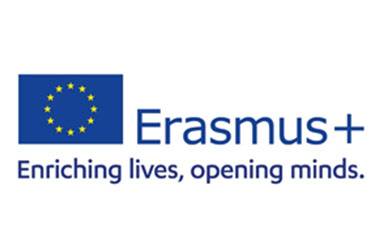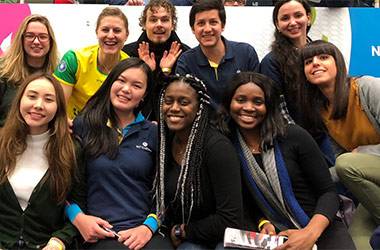Wittenborg Online News!
Wittenborg Receives Erasmus Charter for Higher Education 2021-2027 Quality Certificate
Wittenborg Receives Erasmus Charter for Higher Education 2021-2027 Quality Certificate
Wittenborg Receives Erasmus Charter for Higher Education 2021-2027 Quality Certificate

Erasmus Charter for Higher Education 2021-2027 Certificate
Wittenborg University of Applied Sciences is proud to be awarded the Erasmus Charter for Higher Education (ECHE) quality certificate for the period 2021-2027. The ECHE provides the “general quality framework for European and international cooperation activities a higher education institution may carry out within Erasmus+”. This award is a pre-requisite for all higher education institutions located in a programme country to participate in learning mobility of individuals and/or cooperation for innovation and good practices under Erasmus+. Wittenborg has achieved a score of 100/100 points in the re-awarding assessment and, therefore, successfully meets all the requirements to further engage in the programme.
Being accorded an ECHE is the entry ticket for Wittenborg into the new Erasmus+ Programme. The programme focuses on enhancing mobility and international collaboration on innovative projects, allowing participants to learn from each other and share best practices. With this award, Wittenborg is able to apply for Erasmus+ funding and take part in Erasmus+ projects. Erasmus+ projects bring in many benefits for both staff and students, such as improving language skills, as well as intercultural and interpersonal communication skills.

Ongoing Erasmus+ projects
Wittenborg has already embarked on three Erasmus+ projects since the start of the new academic year, namely:
- Eco-systems of Open Science Schooling - Making open science schooling a reality for secondary school students
- Innovation in the furniture industry in the era of circular economy (INFURI)
- Enhancement of internal quality assurance of education in teaching, learning and assessment in HEIs of Azerbaijan and Russia (IQAinAR)
With this participation, Wittenborg emphasises its dedication to promoting excellence in teaching and learning and to creating the best environment for students and staff, where internationalisation, diversity and ethics set the premises for successfully applied, research-informed global learning. As the President of Wittenborg, Peter Birdsall, emphasised, “Wittenborg envisages becoming a recognised university of applied sciences with an international, innovative approach to higher education, creating life-changing opportunities and advancing the development and dissemination of knowledge in partnerships with the (business) community”.
Wittenborg's vision as an international hub in the EU region
Wittenborg’s engagement in the Erasmus+ Programme pursues this purpose and it sees its role as the education and training of highly qualified, internationally minded, socially responsible and intercultural, critical and independently thinking graduates, who engage in innovative and creative business in companies and organisations around the world, either working for others or in the instigation of business and entrepreneurship. Wittenborg sees its future role as an international hub for the region and best practice for international higher education in the Netherlands. By participating in Erasmus+ projects, it hopes to strengthen international partnerships within the European community, not only with programme countries, but also with partner countries.
Enhancing Wittenborg's internationalisation characteristic
Participation in the Erasmus+ Programme will enhance Wittenborg’s
already strong internationalisation characteristic, through the
increased involvement in cooperation projects, increased staff and
student outward-bound mobility, and an improved quality of institutional
partnerships. Currently, 90% of all Wittenborg students come from
outside the Netherlands and 50% of its staff are originally from abroad.
Furthermore, participation in the Erasmus+ Programme will enable
Wittenborg to further improve its standing to be reaccredited for
European Consortium for Accreditation (ECA) accreditation for
internationalisation, also leading to the ECA accreditation for its
master’s degree programmes.
As Wittenborg's Assurance of Learning Manager, Kriszta Rostas-Kaspers,
commented, “We are proud to be holders of the ECHE for the coming
period. Participation has clearly benefitted Wittenborg on many levels
and by having our strategic planning aligned with the Erasmus goals, we
position ourselves to take part effectively in the programme. The new
ECHE principles, including online administration of Erasmus activities,
actions revolving around adopting and promoting environmental
friendliness and active citizenship, coincide with our strategic
initiative and related goals and objectives to shape our organisation
culture based on our key values of internationalisation, diversity and
ethics. Our new Strategic Plan for the same period will soon be
published and shared with all stakeholders. The next step is drawing up
an action plan to demonstrate our commitment to the new ECHE principles
as per the recommendations of the European Commission.”
WUP 22/3/2021
by Hanna Abdelwahab
©WUAS Press
707 words